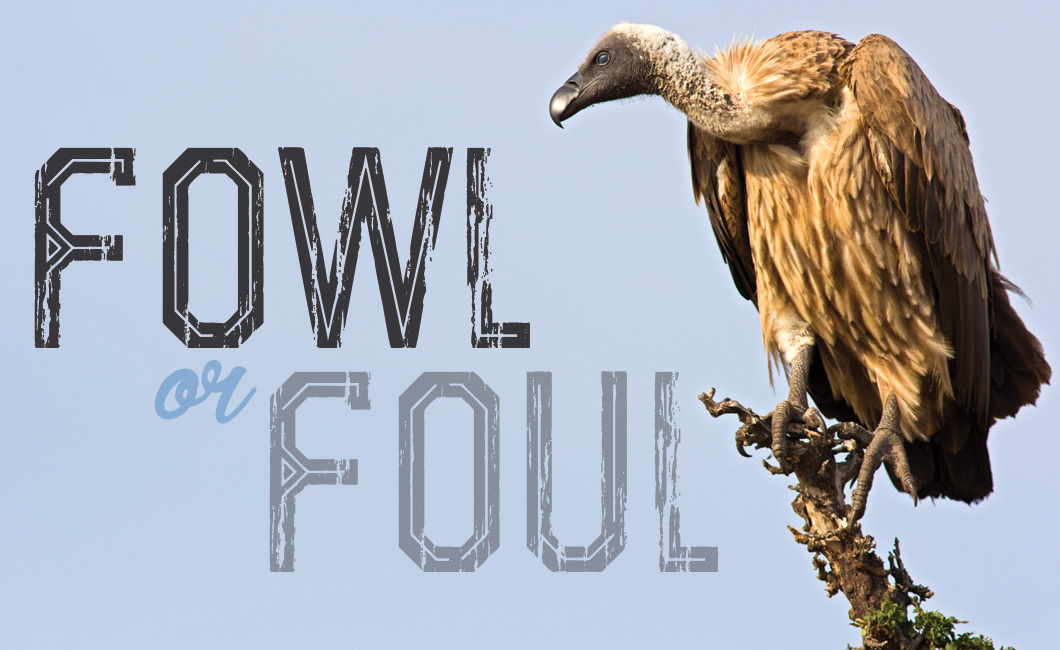- Vultures can live to 25 years of age.
- Unlike other raptors, vultures have long toes with blunted talons, making it easier for them to walk.
- Vulture vocalizations include grunts and rasping hisses as they lack a voice box.
- Vulture’s heads are bald so they can easily clean themselves after feeding.
- Despite popular misconception, vultures prefer to eat fresh kills, although they can eat carrion on the verge of being spoiled.
- According to Helen Dishaw, Tracy Aviary Bird Programs Manager, vultures are smart, “In my opinion, they’re always thinking and evaluating, sometimes to the point of overthinking. They don’t do anything rote or blindly.”
- Vultures excrete urine down their legs, which gives their legs a white appearance. This serves two purposes. During warmer months it helps them thermoregulate, allowing them to cool themselves down. And as their urine is high in uric acid (which is what makes their legs appear white), it helps to kill off toxins and bacteria they may touch when stepping on and moving around carcasses.
- Cathartes aura, the turkey vulture’s scientific name, means “purifying breeze” or “golden purifier.” And unlike most predators who hunt by sight and/or sound, turkey vultures hunt by scent. They have one of the keenest senses of smell in the animal kingdom, which allows them to detect methane gas produced by decomposition. Their sense of smell is so sharp they have been used to detect leaks in gas lines, circling the leak as they would a carcass.
- With stomach acid comparable to battery acid, vultures can withstand around 100 times more botulism than humans, allowing them to consume foods that would sicken or kill people.
- Vultures let nothing go to waste, even regurgitating digested and semi-digested food around their nesting sites as an off-putting deterrent to nest predators. If necessary, they also will regurgitate their food to lighten their body weight to escape predators.
- Through convergent evolution, the development of similar behaviors and bodies serving the same ecological niche, vultures are classified as one species. However, vultures found in the Americas (New World vultures) and those found in Africa, Asia and Europe (Old World vultures) aren’t closely related.
- https://www.wildlifecenter.org/vulture-facts
- http://www.vetstreet.com/our-pet-experts/10-fascinating-facts-about-vultures
- http://www.vetstreet.com/our-pet-experts/10-fascinating-facts-about-vultures
- https://www.vultureday.org/
Written by Jenifer Chrisman on November 7, 2018.
Vulture
All the freest flyers have been misunderstood. As we climb to the ever-higher perspectives, the beauty in everything begins to be revealed to us. Life feeds on life. Death is not an end, but a new beginning. Beauty and ugliness are nothing more than two perspectives on the same thing. Stretch your wings to the infinite current, let yourself be carried by the power of your truth. Know that any judgement that visits you, is only your own in disguise.
– Letters from the Earth, by Sunni Chapman
Vultures (aka buzzards) have long had a bad rep. Perched menacingly around houses or graveyards in numerous horror films or portrayed as simpleminded in cartoons, such as Warner Brothers animation (Beaky Buzzard), modern culture rarely sees them in any kind of complimentary manner. And being called a vulture…well, everyone knows what an insult that is.
Vultures will never be called photogenic, nor will they win any beauty contests - at least not on looks alone. And, like crows, there is no denying they are carrion feeders. But is that a bad thing?
Vultures are part of nature’s cleanup crew. A decrease in vulture population would see a decided increase in the spread of pathogenic bacteria (including anthrax) and diseases, of which carrion provide an ample breeding ground. By rapidly consuming carrion, vultures not only protect humans, livestock and wildlife, they help cleanse the environment.
This removal of carrion also helps to keep feral animal populations (rats, cats, dogs, etc.) under control. While this may not seem like such a big deal, increased feral populations lead to more bites, which in turn lead to an increased chances of contracting rabies or other contagions.
So in honor of these underappreciated birds…below are some interesting facts to ponder:
Vulture populations are in serious decline in some areas of the world. The reduction of their services in the disposal of carrion is having an impact on environmental quality, human and livestock health and economic activity.
Up until the early 1900s, vultures were viewed as a beneficial part of human population areas. But for those who are experiencing their decline, too many now see them as disease carrying scavengers. Unprotected and maligned, if something doesn’t change, vultures will become just another extinct animal and the environment, as well as our way of life, will be the poorer.
To learn more about these misunderstood and misrepresented birds, visit vultureday.org.
Sources:



